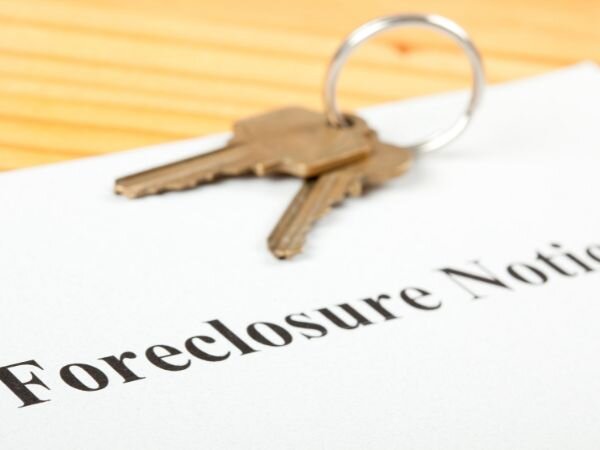
Homeowners often feel overwhelmed by foreclosure. But don’t worry you have options to help you through the process. This blog discusses Stockton’s California foreclosure timeline process, including loan modification, refinancing, forbearance, short sales, and pre-foreclosure options. You’ll learn how to handle lender notices and court summons during foreclosure. Working with a foreclosure attorney or housing counselor, redemption after foreclosure, and eviction proceedings will also be covered.
Foreclosure Timeline Process In California: Stockton

When a California borrower doesn’t pay back a mortgage loan, the lender can start the foreclosure process by sending out a “notice of default”. The notice of default is the first step in the nonjudicial foreclosure process, which allows the lender to foreclose on the property without going through the court system. The notice of default must be written down and sent by certified mail to the borrower and anyone else who might be interested. The borrower has 90 days to fix the problem after the notice of default is filed. If the borrower doesn’t fix the problem, the trustee may sell the foreclosed property to a potential buyer or third parties.
The trustee sale is a public auction of the property that was taken back by the bank. The trustee must post a notice of trustee sale in a public place once a week for three weeks in a row. The trustee must also send a copy of the notice of trustee sale by certified mail to the borrower and anyone else who might be interested. After the notice of trustee sale is filed, the sale can’t happen for at least 21 business days. At a trustee sale, the property goes to the person who bids the most. The person who wins the auction must pay the full price in cash or a cashier’s check.
The person who wins the auction becomes the new owner of the property, and the borrower loses all rights to it. Under California law, there is no right of redemption after a non-judicial foreclosure sale. The winning bidder is entitled to possession of the property immediately, and the former owner of the house must vacate the property. If the winning bid is less than the amount owed on the mortgage, the lender may seek a deficiency judgment against the borrower for the difference between the winning bid and the amount owed. However, in some cases, the borrower may be protected from a deficiency judgment under the California Homeowner Bill of Rights (HBOR) (HBOR).
Foreclosure in California Timeline: Stockton
Understanding the foreclosure in California timeline process is crucial for anyone who may be facing the possibility of losing their home. In Stockton, California, the foreclosure timeline typically consists of three phases: the notice phase, the lawsuit phase, and the court phase.
During the notice phase, the homeowner is given a written notice detailing the reasons for the foreclosure. This is followed by the lawsuit phase where the homeowner will file a lawsuit against their lender in order to try and prevent or delay the foreclosure.
The court phase is where the court will decide whether or not to approve or deny the foreclosure. It is important for homeowners to understand that this process can take several months or even longer, depending on various factors such as legal complexities and lender actions. It is advisable to seek legal counsel as soon as possible if you are facing foreclosure in Stockton, California.
Homeowner Pre-foreclosure Options

If you are facing foreclosure, there are several options available to you before the process begins. Pre-foreclosure counseling is one option where a professional can assist homeowners in preparing for the foreclosure process. Another option is to hire a foreclosure attorney who can provide legal advice and representation during the foreclosure proceedings.
If financial hardship is severe, filing for bankruptcy may be an option. Government assistance programs such as Section 8 housing or stimulus funds may also be available to eligible applicants. Lastly, if all other options fail, the homeowner may consider selling the property at a discounted price. It’s important to understand all of your options and seek professional guidance to make an informed decision on what steps to take next.
Loan modification, Refinancing, And Forbearance
Homeowners in Stockton have several options to explore before facing foreclosure, such as loan modification, refinancing, forbearance, and borrowing. These options can help lower monthly payments or extend the repayment program period, and could help keep homeowners in their homes. It is important to speak to a lender or mortgage broker to find out about these programs.
Short Sale: Alternative To Foreclosure
In the event of a financial hardship that makes it impossible to keep up with mortgage payments, homeowners in California may consider a short sale as an alternative to foreclosure. A short sale is a sale of a property that is not in compliance with the terms of the mortgage. To qualify for a short sale, the property must be in “bad shape.” The seller must prepare a detailed proposal and provide relevant documentation such as appraisals and insurance certificates. The buyer must agree to purchase the property at a price below the current market value. If approved, the lender will proceed with the short sale process. It’s important to remember that a short sale does not guarantee forgiveness of any remaining debt, but can help avoid foreclosure and its negative impact on credit scores.
Foreclosure Procedures
The foreclosure in California timeline process can be a difficult, complex, and lengthy procedure. The first step in the process is for the lender to file a notice of intent to foreclose. Once this has been filed, the homeowner will receive a Notice of Sale from the lender. If the homeowner does not respond or take any action, the foreclosure process will continue, which may involve several court appearances and can take weeks or even months to complete.
The lender auctions the property after foreclosure. This sale will pay off the mortgage. Before making any major decisions, homeowners should consult legal specialists throughout this process.
How to Respond to Notices From Lender And Court Summons

The most important details of the phrases California, default judgment, payment, notice, and lender are that if a notice is received from a lender, it is important to read and respond to it promptly. If there is a default judgment being filed against someone, it can have significant consequences for the individual’s personal and financial well-being. It is also important to seek legal help as soon as possible to ensure that the individual understands their rights and options during the process.
Redemption Period and Eviction After Foreclosure
The foreclosure in California timeline process, specifically in Stockton, involves several stages. The redemption period is the time given for homeowners to make necessary payments and come into compliance with their loan obligations. After this period expires, an eviction notice will be issued if the homeowner has not made substantial progress in correcting their situation.
The forfeiture status of a property specifies whether or not the homeowner had defaulted on their loan. Loan modification can help a homeowner stay in their home after going through forfeiture. Once the redemption period and eviction notices have expired, the lender now owns the property and can sell it at any time.
Sell Your Property To Avoid Foreclosure

It takes months to finalize a forfeiture. So it’s crucial to know your rights and options if you’re facing forfeiture in California. Before this happens, you can sell your property. Selling soon can help you avoid forfeiture.
California foreclosure process can be eased by negotiating with your lender. You may need a lawyer to aid with the procedure. Keep track of legal processes because they could affect your right to sell the property at any time.
Finally, if you’re facing forfeiture in California, act immediately and consider all your choices. Consult a professional and negotiate better terms with your loan. Avoiding forfeiture by selling your home can save you stress and money.
Is there a way to avoid foreclosure or stop it from happening?
Yes, there are several options and legal process to avoid or stop repossession in California. One option is to negotiate with your lender for a loan modification or repayment plan. Another option is to sell your home through a short sale or transfer ownership through a deed in lieu of foreclosure.
If you are facing forfeiture, it may also be beneficial to seek the assistance of a forfeiture prevention counselor or attorney who can help explore other options and provide guidance on the best course of action for your specific situation.
Can you stop a foreclosure in California?
Yes, there are several ways to stop foreclosure in California, such as loan modification, forbearance, short sales, and bankruptcy. It’s important to act quickly and seek the help of a forfeiture attorney or housing counselor.
Conclusion
Knowing the timetable and homeowner alternatives during foreclosure might be overwhelming. Short sales are another choice for forfeiture outside loan modification, refinancing, and forbearance. Responding to lender warnings and court summonses, engaging with a forfeiture attorney or housing counselor, and comprehending the redemption period and eviction after forfeiture are crucial during forfeiture. Selling your home may prevent California forfeiture. Read our entire advice on selling your home fast in California to avoid forfeiture.
Contact Us
We would love to hear from you! Please fill out this form and we will get in touch with you shortly.

